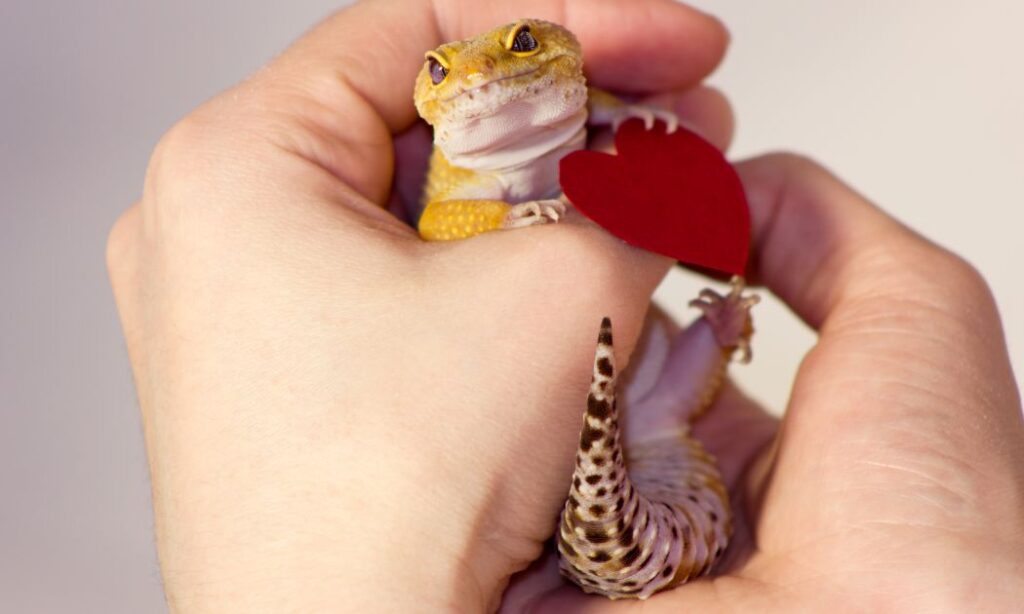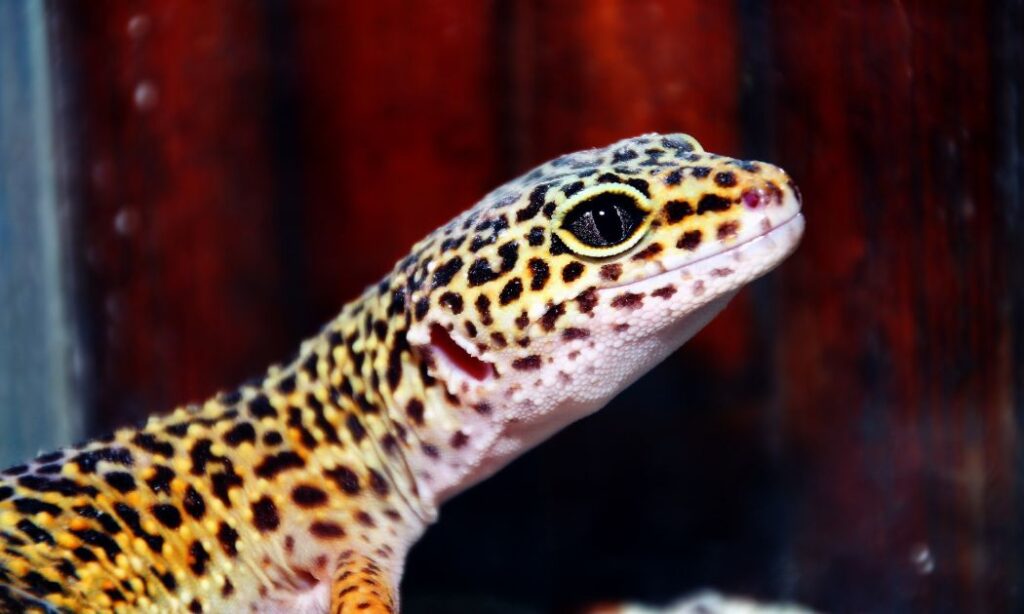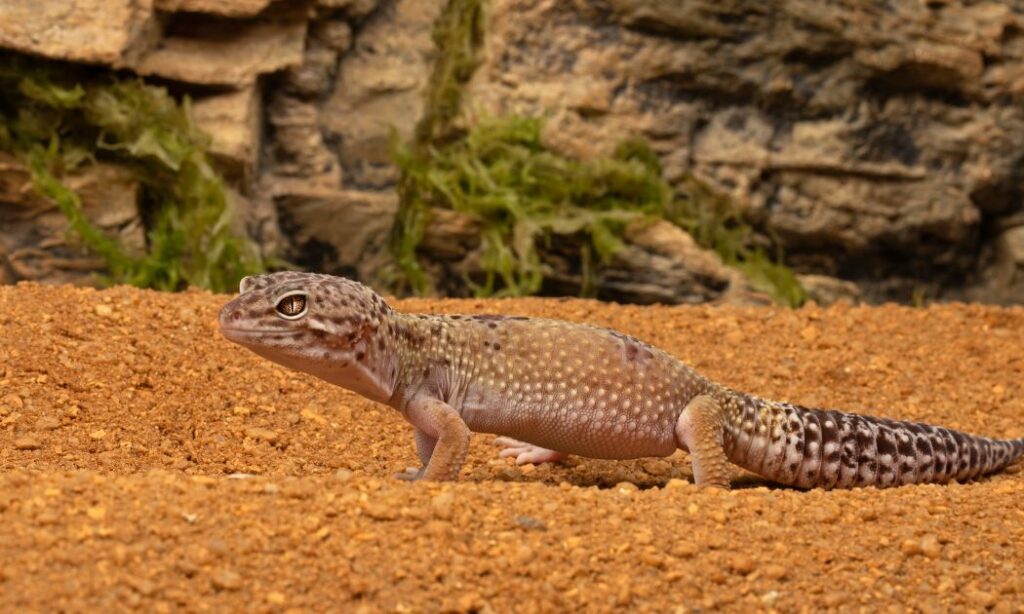If you’re a leopard gecko owner, you might be wondering if your pet gecko can have seizures. Leopard geckos, a popular reptile pet species, are a fascinating and unique creature with their own set of needs for proper care.
Many owners of these lizards may not be aware that leopard geckos can suffer from seizures due to various causes. Seizures in leopard geckos can have serious effects on their health and well-being, which is why it is important to understand the causes, symptoms, treatments and prevention of seizures in these animals.
In this blog post, we’ll discuss what causes seizures in leopard geckos and what you can do to help your pet if they experience one.
What are leopard geckos?
Leopard geckos are a type of lizard that is native to Africa and Asia
Leopard geckos are an interesting species of lizard that make a great pet! They come from the Eublepharidae family, native to the dry deserts of Africa and mountainous regions in Asia.
There have been numerous varieties selectively bred to exhibit unique patterns and colors. It’s no surprise leopard geckos are so popular as pets – they remain relatively small, active during the day, and shy away from handling by humans.
Furthermore, they don’t require any special lighting or heating, as they’re meant to survive in cooler/drier climates. With regular maintenance, leopard geckos make loyal companions with playful personalities.
Leopard geckos are a popular pet reptile due to their small size, gentle demeanor and ease of care. They may seem like ideal pets for people of all ages, but there have been some reports of seizures in leopard geckos.

Gecko temperment
They are popular pets because of their docile nature and unique appearance
Geckos have become increasingly popular pets in recent years due to their gentle personalities and remarkable physical features. These little creatures can be found in a variety of sizes, colors, and patterns, making gecko ownership not just interactive, but aesthetically pleasing as well.
They are low maintenance reptiles, perfect for novice pet owners who still want the fun of owning and interacting with an exotic pet. Geckos don’t need much space to thrive either; a couple rocks and some plants provide them with comfortable environment in which they can express their personalities. With proper caretakers these geckos can give years of companionship, entertainment, and joy for the whole family.
Leopard geckos are an incredibly popular pet reptile due to their docile nature and ease of care. It is important, however, for owners to understand the complexities of their pet’s health, including the possibility of seizures. Seizures can be a very frightening experience for both leopard geckos and their owners alike.
What is a seizure?
A seizure is an abnormal electrical activity in the brain that can cause physical symptoms such as trembling and spasms or behavioral changes such as confusion and disorientation. Seizures can range from mild to severe, depending on the severity of the issue causing them. While most reports describe seizures in wild caught leopard geckos, it is possible for captive bred ones to experience them too.
It is important to understand why leopard geckos might have seizures so that owners can take steps to reduce the risk and provide proper care if one does occur.

Seizures in leopard geckos
Leopard geckos can have seizures if they are not given the proper care
Leopard geckos are exciting and fun animals to care for, but they require knowledge in order to remain healthy. Specifically, if a gecko is not given the proper calcium and vitamin supplements in the correct ratios, it can suffer from seizures.
While these seizures may be minor and fleeting episodes of jerky or stiff movements, they can become more serious if left unchecked.
All gecko owners should prioritize making sure their companions are kept happy and well-nourished by providing them with the best food and supplements that are tailored specifically for geckos.
Causes of seizures in leopard geckos
Seizures in leopard geckos can be caused by stress, lack of food, or dehydration
Leopard geckos can be the perfect pet, with their relatively small size and low-maintenance lifestyle. However, owners must be careful, as these geckos are prone to seizures. Seizures in leopard geckos can occur for several reasons such as stress, not getting enough food, or dehydration.
Stress is often caused by changes in environment such as noise level, temperature fluctuations, unclear assigned territory within the habitat of multiple geckos and parasites. In order to prevent seizures in geckos it is important to create a safe and healthy environment with familiar living conditions.
Furthermore, gecko owners should be sure offer geckos ample amounts of food with fresh water to avoid issues caused by lack of nourishment or dehydration.
By staying vigilant about their gecko’s environment and diet gecko owners can keep their reptile healthy and seizure free!
What to do if your leopard gecko has a seizure
If you think your leopard gecko is having a seizure, it is important to seek veterinary care immediately
If your beloved gecko is exhibiting unusual behavior such as shaking, twitching, and/or drooling, it may be having a seizure. This could indicate underlying health issues that need to be addressed; therefore, it is important to seek veterinary care immediately.
Seizures can quickly become life-threatening due to the gecko’s inability to regulate body temperature and heart rate while experiencing a seizure. Depending on the cause of the seizure, your pet gecko may benefit from medication or other therapies to treat the underlying condition.
By seeking vet care right away, you are taking all necessary steps to keep your gecko happy and healthy long-term.

Preventing seizures in leopard geckos
There are many ways to prevent seizures in leopard geckos, including providing a stress-free environment and ensuring they have access to food and water
Leopard geckos are fascinating pet reptiles that make fun companions with the right care and attention. While they are comparatively hardy, leopard geckos may occasionally experience seizures due to stress or poor nutrition.
Fortunately, this problem is easy to avoid by providing them with a stress-free environment and plenty of food and water. Knowing common signs of illness like having runny eyes or loss of appetite can also be useful in detecting health issues before they become severe enough to cause seizures.
With these simple precautions and regular veterinary checkups, gecko owners can rest assured that their reptilian friends will remain healthy and happy for many years to come.
Wrapping It Up
In conclusion, leopard geckos can have seizures caused by various environmental and health factors. Leopard gecko owners should be aware of the signs of a seizure, such as convulsions, jerking motions, and paralysis, so that they can take the necessary steps to get their pet the proper care from a veterinarian. Additionally, leopard gecko owners should always strive to keep their pet’s habitat and diet as healthy as possible in order to reduce their risk for seizures.
Related posts:

Hi – I’m Erika, the lead gecko enthusiast here at Geckopedia! I write articles about pet geckos, including what to feed your leopard gecko and how to help your pet gecko live a long, happy life! I graduated with advanced degrees from UC-Berkeley, the University of Southern California (USC) and Indiana University-Bloomington, where I studied Biology and Animal Science. I use my experience to help others learn about gecko care, and I am an advocate for all topics gecko related!
